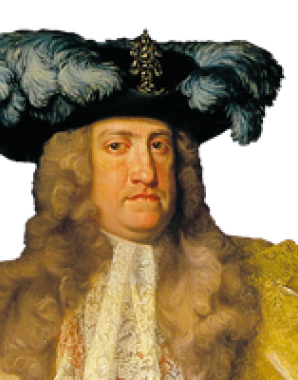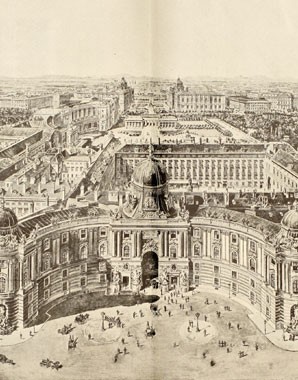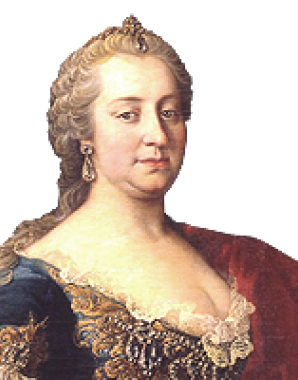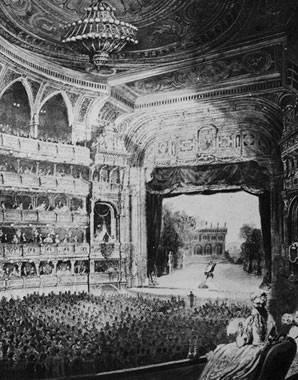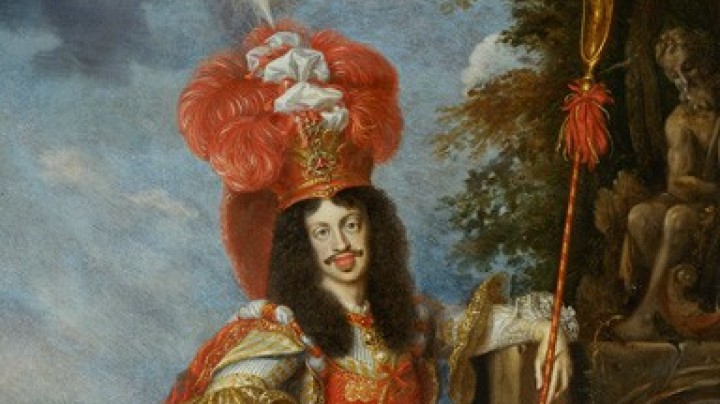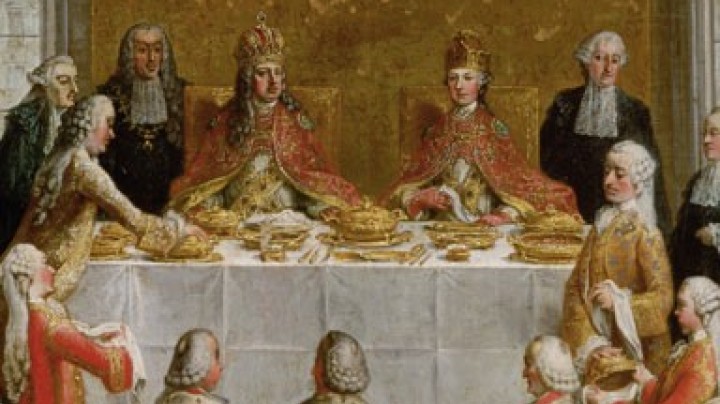A musical family
The Habsburgs were noted for their enjoyment of music, dancing and acting from childhood onwards – Maria Theresa was no exception.
Several times a year Charles VI commissioned elaborate festive opera performances in the Court theatre rooms, despite the fact that the state finances were in steep decline. He introduced the vogue for performances with members of the aristocracy in which his daughters, Maria Anna and Maria Theresa, also took roles. On the birthdays and name-days of the imperial couple their children took to the stage in ballet and drama performances in front of a select audience. In 1732 the young archduchesses together with ladies of the Court performed an Italian comedy ‘for the pleasure of their parents on a stage built especially for this purpose’ in one of the rooms at the Hofburg.
Not only balls and other festivities at the Imperial Court but also all theatrical performances in Vienna were strictly governed by the Church calendar. During periods of fasting, entertainments such as these were not permitted, and no ‘Comedie’ performances took place on Fridays. Whenever a member of the imperial family died a period of mourning had to be observed during which festivities and theatrical performances were prohibited.
A new rival to the hitherto dominant Italian directors of music emerged in the Styrian Baroque composer Johann Joseph Fux (1660–1741). He was music teacher to Charles VI and from 1711 occupied the influential positions of Court Music Director and Court Composer. Charles VI also composed music and conducted performances of works by other composers from the clavier; Kapellmeister Fux enthused over his gifts: ‘Oh, what a pity that Your Majesty did not become a virtuoso’.
Both Charles VI’s daughters sang. At their mother’s request they performed an ‘operetta’ in the Hall of Mirrors at the Hofburg in 1735: ‘Kayserliche Hof- und Kammermusici’ (Imperial Court musicians) accompanied the Archduchesses Maria Theresa and Maria Anna, ‘who sang and acted without scores’.
Maria Theresa had a lifelong preference for Italian music. In 1771 she wrote to her daughter-in-law Maria Beatrix commending a Requiem by the old Court Kapellmeister Georg Reutter, a teacher of Joseph Haydn, but opined that she preferred ‘the least of the Italians to any Austrian composer, even Gassmann, Saglieri, Gluck and others. Here and there they are able to make one good piece or other, but on the whole I always prefer the Italians.’


